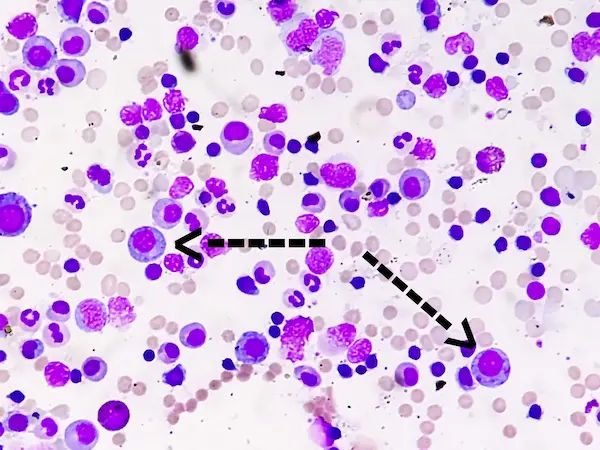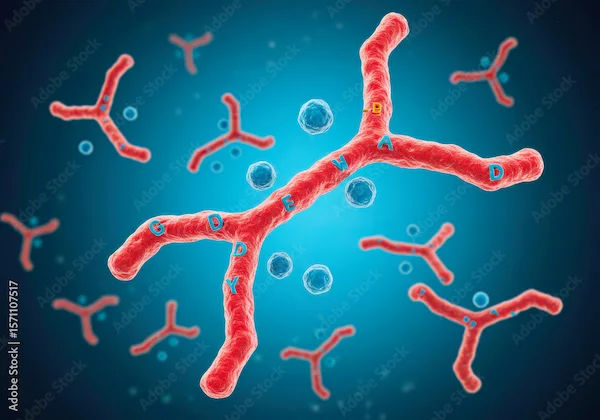Cognitive Testing Overview
Explore what cognitive testing involves, why it's done, and how it helps assess memory, attention, and problem-solving abilities in various age groups and conditions.

Written by Dr. J T Hema Pratima
Reviewed by Dr. D Bhanu Prakash MBBS, AFIH, Advanced certificate in critical care medicine, Fellowship in critical care medicine
Last updated on 25th Aug, 2025

Cognitive testing is a simple yet powerful way to assess how well your brain is functioning. Whether you're concerned about memory lapses, difficulty concentrating, or just want to keep your mind sharp, cognitive tests can provide valuable insights. In this article, we’ll break down what cognitive testing is, why it matters, and how you can take steps to maintain good brain health.
What Is Cognitive Testing?
Cognitive testing evaluates different brain functions, including:
Memory: How well you recall information.
Attention & Concentration: Your ability to focus on tasks.
Language Skills: Understanding and using words correctly.
Problem-Solving & Reasoning: How you process and solve problems.
Visual-Spatial Skills: Recognising shapes, distances, and spatial relationships.
These tests are often used to detect early signs of cognitive decline, dementia, or other brain-related conditions.
Why Is Cognitive Testing Important?
Our brain, like any other organ, changes with age. Sometimes, mild forgetfulness is normal, but significant memory loss or confusion could signal a deeper issue. Cognitive testing helps:
Identify early signs of conditions like Alzheimer’s or dementia.
Monitor brain health over time.
Guide treatment plans if cognitive issues are detected.
Provide peace of mind by ruling out serious concerns.
Who Should Consider Cognitive Testing?
You might benefit from cognitive testing if you or a loved one experiences:
Frequent forgetfulness (misplacing keys, forgetting names).
Trouble following conversations or instructions.
Difficulty completing familiar tasks.
Confusion about time or place.
Mood or personality changes without clear reason.
Even if you don’t have symptoms, testing can be helpful for those with a family history of dementia or other neurological conditions.
Types of Cognitive Tests
There are different kinds of cognitive tests, ranging from simple questionnaires to more detailed assessments:
1. Mini-Mental State Examination (MMSE): A short test assessing memory, attention, and language.
2. Montreal Cognitive Assessment (MoCA): Checks memory, problem-solving, and spatial awareness.
3. Clock Drawing Test: Evaluates planning and visual-spatial skills by drawing a clock.
4. Neuropsychological Testing: A more detailed assessment done by specialists.
Many of these tests can be done in a doctor’s office or even at home with guidance.
Consult Top Specialists
How to Prepare for a Cognitive Test?
No special preparation is needed, but you can:
Get a good night’s sleep before the test.
Avoid alcohol or sedatives that may affect thinking.
Bring a list of medications you take.
Have a family member accompany you if needed.
What Happens After the Test?
Your doctor will review the results and discuss next steps. If concerns are found, they may recommend:
Further testing (brain scans, blood tests).
Lifestyle changes to support brain health.
Medications or therapies if needed.
Tips to Keep Your Brain Sharp
Whether or not you take a cognitive test, these habits can help maintain brain health:
1. Stay Mentally Active
Read books, solve puzzles, or learn a new skill.
Engage in activities that challenge your brain.
2. Eat a Brain-Healthy Diet
Include omega-3 fatty acids (fish, nuts).
Eat plenty of fruits, vegetables, and whole grains.
Limit processed foods and excess sugar.
3. Exercise Regularly
Physical activity improves blood flow to the brain.
Even walking 30 minutes a day helps.
4. Get Enough Sleep
Poor sleep affects memory and focus.
Aim for 7-9 hours of quality sleep.
5. Manage Stress
Practice meditation or deep breathing.
Stay socially connected with friends and family.
6. Avoid Smoking & Limit Alcohol
Both can negatively impact brain function over time.
When to See a Doctor?
If you or a loved one notice persistent cognitive difficulties, don’t ignore them. Early detection can make a big difference in managing brain health.
Need a cognitive assessment? You can book a consultation with a neurologist or schedule a cognitive test through Apollo 24|7. Early checks can help you stay proactive about your brain health.
Conclusion
Cognitive testing is a helpful tool to understand and monitor brain function. Whether you’re experiencing concerns or just want to stay ahead, these tests provide clarity and guidance. By adopting healthy habits, you can support your brain’s well-being for years to come.
Remember, taking care of your mind is just as important as taking care of your body. Stay informed, stay active, and don’t hesitate to seek professional advice if needed.
Consult Top Specialists
Consult Top Specialists

Dr. Mohamed Azeem
General Physician/ Internal Medicine Specialist
2 Years • MBBS,MD(Internal Medicine) CCEBDM
Karaikudi
Apollo Hospitals Karaikudi, Karaikudi

Dr. Sandhya Chandel
General Physician/ Internal Medicine Specialist
16 Years • MBBS, MD (Int. Med.), IDCCM
Bilaspur
Apollo Hospitals Seepat Road, Bilaspur
(125+ Patients)

Dr Syed Mateen Pasha
General Physician
2 Years • MBBS
Bengaluru
PRESTIGE SHANTHINIKETAN - SOCIETY CLINIC, Bengaluru

Dr. Anand Ravi
General Physician
2 Years • MBBS
Bengaluru
PRESTIGE SHANTHINIKETAN - SOCIETY CLINIC, Bengaluru

Dr. Harshendra Jaiswal
General Physician/ Internal Medicine Specialist
12 Years • MBBS , MD (General medicine)
Kolkata
108 DHANA DHANVANTARI Clinic, Kolkata
(25+ Patients)




